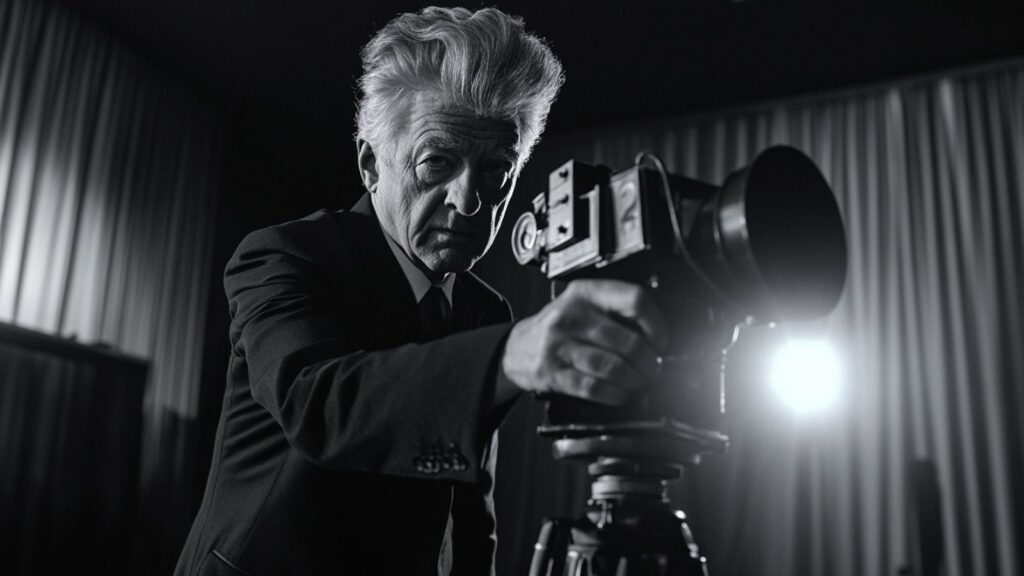The following is excerpted from One Mind: How Our Individual Mind is Part of a Greater Consciousness and Why It Matters, published by Hay House.
On January 2, 2007, Wesley Autrey, a 50-year-old, African-American construction worker and Navy veteran, was waiting for a subway train in Manhattan with his two young daughters at around 12:45 P.M. As Autrey stood there, he was unaware that he was about to become involved in a sequence of events that would change his life, and which would reveal profound truths about the nature of the human mind.
He noticed a young man, Cameron Hollopeter, 20, having a seizure. The man managed to get to his feet, but stumbled from the platform onto the tracks between the two rails. Autrey saw the lights of an approaching train and made an instant decision. He jumped onto the tracks, thinking he would have time to drag Hollopeter away. Realizing this was impossible, he covered Hollopeter’s body with his own and pressed him down in a drainage ditch about a foot deep between the tracks. The train operator tried to stop and the brakes screeched, but by the time he could do so five cars had passed over the two men. It was a close call; the cars were so close to Autrey they smudged grease on his blue knit cap. Autrey heard onlookers screaming. “We’re O.K. down here,” he yelled back, “but I’ve got two daughters up there. Let them know their father’s O.K.” Then he heard cries of wonder and applause from the bystanders.
Hollopeter, a student at the New York Film Academy, was taken to hospital, but sustained only bumps and bruises. Autrey refused medical help because, he said, nothing was wrong.
Why did Autrey do it? He told The New York Times, “I don’t feel like I did something spectacular; I just saw someone who needed help. I did what I felt was right.”1 He said further that, as a construction worker, he was used to working in confined spaces, and that his judgment in this case proved to be “pretty right.”2
Autrey was extraordinarily modest, but this did not shield him from the public’s adulation. He was an overnight celebrity, with appearances on several national morning news programs and late-night shows. Gifts poured in — scholarships and computers for his two daughters, a new Jeep Patriot, season tickets to the New Jersey Nets, a one-year free parking pass for use anywhere in New York City, and a year of free subway rides, among others. Time magazine named him as one of the 100 most influential people in the world for 2007.3 He was named an Everyday Hero by CNN to honor those who have made a difference in the world. He was a guest at the 2007 State of the Union Address to the U. S. Congress, where he received a standing ovation.
Why Risk Everything?
Why would one person willingly risk or sacrifice his or her life for another? The answer might seem obvious: because he or she simply cares and has empathy or love for the person in need. But that answer is not good enough for evolutionary biologists, who want to know what purpose is served by the caring, empathy, and love. What does the individual gain by acting on these feelings? According to the tenets of evolutionary biology, we are genetically programed to act in ways that insure our survival and reproduction. Our empathic acts, therefore, might extend to those closest to us who share our genes — our siblings, children, our kinship group — because helping them helps us genetically in the long run. Or we might extend empathy toward our tribe or social unit, because we might one day need them to reciprocate.
In this light, actions like Wesley Autrey’s are biological heresy. He was not remotely connected with Cameron Hollopeter, not racially, socially, occupationally, or culturally. Autrey’s genes would not have benefited if he died saving the young white man. So, according to evolutionary biology, Wesley Autrey should have stayed on the subway platform and let Cameron Hollopeter shift for himself.
Some might argue that Autrey did benefit from saving Hollopeter. He became famous, his daughters got college funds and computers, he received cash awards and other tangible benefits. Since his action changed his circumstances and made his life and that of his daughters less difficult, perhaps there was a genetic payback in what he did. But he did not know these things would happen. And in any case, was it worth risking his life in what appeared to be certain death? Surely not. In this dangerous situation, genetic conservation should have kept Autrey on the platform with his daughters, along with all the onlookers who thought it would be suicidal to act as he did.
Others argue that our brains are hardwired for empathy. So-called mirror neurons recently have been discovered in the brains of primates including humans. These cells are activated when we view the actions of others, just as if we were performing those actions ourselves. These neurons are also called empathy neurons because, some say, they cause us to share the feelings of another. According to this line of thinking, the mirror neurons in Wesley Autrey’s brain instantly fired a burst of activity the moment he saw Hollopeter fall onto the tracks, and motivated him toward his selfless act. If so, why didn’t the empathy neurons of other witnesses prompt them as well? In any case, this field remains hugely controversial and leaves completely untouched the sticky question, conveniently overlooked by mirror-neuron enthusiasts, of how the firing of a neuron can actually be translated into the feeling of empathy, caring, love, courage, or any other emotion.4
Becoming Someone Else
Joseph Campbell, the great mythologist, was interested in why people perform selfless acts. He was influenced by the views of the German philosopher Arthur Schopenhauer (1788-1860). Campbell observed, “There’s [a] wonderful question Schopenhauer asked. How is it that an individual can so participate in the danger and pain of another that, forgetting his own self-protection, he moves spontaneously to the other’s rescue, even at the cost of his own life?” Schopenhauer believed that self-sacrifice for another occurs because the rescuer realizes that he or she and the individual in need are one.
At the decisive moment, the sense of separation is totally overcome. The danger to the needy person becomes that of the rescuer. The prior sense of separateness is simply a function of the way we experience things in space and time: we may appear separate and often feel separate, but the separation is not fundamental. Because we experience ourselves as one with the person in need, when we risk our life to save them we are essentially saving ourselves.
Campbell elaborated, “Now, that spontaneous compassion, I think, would jump culture lines. If you were to see someone of a totally alien world — even a person or a race or nation that you had no sympathy for — the recognition of a common human identity would spark a response. And the ultimate reference of mythology is to that single entity, which is the human being as human.”5
I have never heard of a rescuer inquiring whether the person in immediate need is a Democrat or Republican, whether they are pro-choice or anti-abortion, how they stand on global climate change, or whether they favor allopathic medicine or homeopathy. The reaction to another human in need leapfrogs these issues in favor of a human-to-human response.
Schopenhauer realized this. As he wrote in his 1840 book On the Basis of Morality, “Universal compassion is the only guarantee of morality.”6 He elaborated, “My own true inner being actually exists in every living creature as truly and immediately as known to my consciousness only in myself. This realization, for which the standard formula is in Sanskrit tat tvam asi, is the ground of compassion upon which all true, that is to say unselfish, virtue rests and whose expression is in every good deed.”7
I’m willing to bet that Wesley Autrey never read a scrap of Campbell or Schopenhaur. He didn’t have to. And that’s the point. When he covered Cameron Hollopeter in the path of an oncoming train, he was defying all instincts for perpetuating his genes. He was in the embrace of the One Mind that binds us all, the unity so clearly glimpsed by luminaries such as Campbell and Schopenhauer. At the decisive moment, from the One-Mind perspective of consciousness, Wesley Autrey was Cameron Hollopeter.
The Downed Chopper
I have long been fascinated by why the Wesley Autreys of the world do what they do. This is not just philosophical curiosity.
I served as a battalion surgeon in Vietnam in 1968-69 in the boonies, beyond anything as fancy as the MASH units popularized in the famous TV series. My world was a sandbag- and barbed wire-protected primitive aid station with minimal equipment, and helicopter missions to aid wounded troops. I was involved in several Autrey-like moments in which I had to make an immediate decision about putting my life on the line for young men in need.
One day in October 1969, a helicopter crashed not far from my forward battalion aid station. I ran to the crash site. When I arrived, the upside-down chopper was ringed by a group of soldiers at a safe distance, because of the expectation that it would explode. The pilot was still conscious, but was trapped in the wreckage and was moaning in pain. Without thinking, I began shoveling sand from the door of the inverted aircraft, entered, and cut the seat belts trapping the pilot. One of my medical crew joined me, and we maneuvered the pilot from the wreckage and carried him to safety. To this day the smell of jet fuel pouring from the ruptured fuel tanks remains a vivid memory, but fortunately the aircraft did not explode. I started an I.V. on the pilot, gave him morphine for his pain, and put him on a med-evac helicopter that flew him to a medical facility for further attention.
Similar incidents marked my time in the war, which I’ve described elsewhere.8
When I returned to the U. S., I was amazed on looking back. Before going to Vietnam, I swore I would never take risks, out of respect for my family and those who cared about me. But whenever instances like the crashed helicopter arose, these resolutions evaporated like morning mist in the desert. It was as if they never existed. There was no careful deliberation during these decisive moments, no weighing of consequences, just action.
I wondered why I did it. I never considered myself a risk-taker. As a physician, I was taught always to be in control to the extent possible, to leave nothing to chance, to apply critical reasoning in every situation. What had happened?
I remember the day, about a year after my return from Vietnam, when in random readings I stumbled onto Schopenhauer’s description — how at the crucial moment the rescuer’s consciousness fuses with that of the person in need, how separateness dissolves and individuality is set aside, how division is overcome and oneness becomes real. I knew in a heartbeat that this was the explanation for my irrational, risky behavior in the war zone. It was as if a veil had been lifted. This was an epiphany, a forceful revelation of adamantine clarity, an insight into a troubling period in my life I had not been able to fathom. For me, in Vietnam the One Mind had been made flesh. It was a priceless gift for which I still tremble in gratitude.
Notes
1. Cara Buckley. Man is rescued by stranger on subway tracks. The New York Times. January 3, 2007. http://www.nytimes.com/2007/01/03/nyregion/03life.html. Accessed January 8, 2012.
2. Wesley Autrey. Wikipedia. http://en.wikipedia.org/wiki/Wesley_Autrey. Accessed January, 2012.
3. Donald Trump. The Time 100. Heroes and pioneers: Wesley Autrey. May 3, 2007. http://www.time.com/time/specials/2007/time100/article/0,28804,1595326_1615754_1615746,00.html. Accessed December 8, 2011.
4. Larry Dossey. Strange contagions: of laughter, jumps, jerks, and mirror neurons. Explore (NY): The Journal of Science and Healing. May 2010; 6(3): 119-128.
5. Joseph Campbell and Michael Toms. An Open Life: Joseph Campbell in Conversation with Michael Toms. Burdett, NY: Larson Publications. 1988: 53.
6. Joseph Campbell and Michael Toms. An Open Life: Joseph Campbell in Conversation with Michael Toms. Burdett, NY: Larson Publications. 1988: 53.
7. Arthur Schopenhauer. Quoted in: Joseph Campbell, The Inner Reaches of Outer Space. New York, NY: New World Library. Third (revised) edition; 2002: 84.
8. Larry Dossey. War: A Vietnam memoir. In: Healing Beyond the Body. Boston, MA: Shambhala; 2001:79-104.
Teaser image by Bob Aubuchon, courtesy of Creative Commons license.













